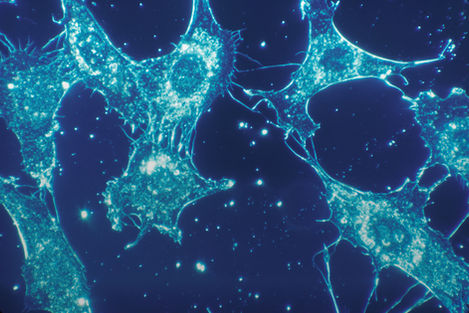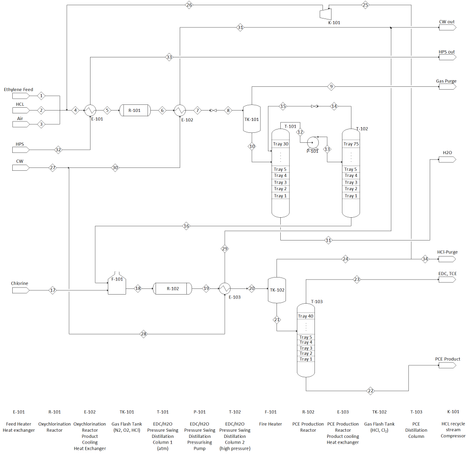top of page
ARIC LI
EDUCATION
My Studies
Sep 2016 - June 2021
University of Ottawa
Bachelor of Applied Science:
Chemical Engineering
Sep 2022 - June 2023
The Hong Kong University of Sciece and Technology
Masters of Science
Chemical and Biomolecular Engieering

University of Ottawa

Degree
Bachelor of Applied Science
Area
Chemical Engineering

University of Ottawa
BASc Chemical Engineering Highlight

Chemical Engineering Laboratory
conduct experiments, analyze data, and develop essential skills for real-world applications in chemical engineering, helping them understand the practical aspects of their theoretical knowledge.

Biochemical Engineering
Focuses on using biological processes and principles to develop and optimize processes for the production of bioproducts, such as pharmaceuticals, biofuels, and biopolymers. It involves the application of engineering principles to design and scale up bioreactors, fermentation processes, and other biotechnological systems.

Plant Design Project
A comprehensive course where students are tasked with designing and planning an entire chemical process plant from start to finish. This subject encompasses various aspects of process engineering, safety, economic considerations, and environmental impact assessment, allowing students to apply their knowledge to real-world scenarios and develop a detailed blueprint for an industrial-scale chemical plant.

Process Risk Management and Sustainability
Focuses on identifying, assessing, and mitigating risks associated with chemical processes while also considering the environmental and economic sustainability of these processes. Students learn to analyze potential hazards, implement safety measures, and incorporate sustainability principles into the design and operation of chemical processes to minimize environmental impact and ensure long-term viability.

Computer-Aided Design in Chemical Engineering
Utilize computer software and tools to model, simulate, and optimize chemical processes and equipment. It involves the application of computational methods to enhance the efficiency, safety, and cost-effectiveness of chemical engineering designs, providing students with valuable skills in utilizing technology for process analysis and design.

Engineering Law
learn about the legal aspects and regulations related to the practice of engineering. It covers topics such as contracts, liability, intellectual property, and environmental regulations, providing engineers with a foundational understanding of the legal framework that governs their profession and ensuring compliance with relevant laws and standards.

THe Hong Kong University of Science and Technology
Degree
Masters of Science
Area of Focus
Chemical and Biomolecular Engineering



Energy, Environment, and Sustainable Development
Examines the intricate relationship between energy production, environmental impact, and the pursuit of sustainable development goals. Students study the environmental implications of various energy sources and technologies, as well as the policies and practices aimed at achieving a balance between energy needs, environmental preservation, and long-term sustainability. This subject equips students with the knowledge and tools to address the challenges of meeting growing energy demands while minimizing adverse environmental effects and advancing sustainable development.

Electrochemical Energy Technologies
Focuses on the development and application of electrochemical processes to store, convert, and utilize energy. This subject covers technologies like fuel cells, batteries, and electrolysis, exploring their principles, materials, and applications in the context of renewable energy, energy storage, and sustainable energy solutions. Students learn to design and optimize electrochemical systems for various energy-related applications.

Advanced Biochemical Engineering
Students study advanced topics in bioprocess design, bioreactor optimization, metabolic engineering, and the industrial production of bio-based products. This subject equips students with the specialized knowledge and skills needed to address complex challenges in the field of biochemical engineering, including the development of novel bioproducts and bioprocesses.

Pharmaceutical Engineering
Focuses on the design, development, and optimization of processes and technologies for the pharmaceutical industry. Students in this subject study the formulation, manufacturing, and quality control of pharmaceutical products, as well as the regulatory and compliance aspects specific to the pharmaceutical sector. They learn to ensure the safe and efficient production of drugs and medicinal products, addressing critical issues such as quality assurance, GMP (Good Manufacturing Practices), and the unique challenges of pharmaceutical process design.

Water Quality Assessment
Deals with the evaluation of the physical, chemical, and biological properties of water to determine its suitability for various purposes, including drinking water, industrial use, and environmental health. Students learn how to analyze water samples, interpret data, and assess water quality parameters such as pH, turbidity, chemical contaminants, and microbiological factors. This subject is crucial for understanding and addressing water pollution and ensuring safe and sustainable water resources management.

Process Reactor Selection and Design
Focuses on the systematic selection and design of chemical reactors for various industrial processes. Students learn how to choose the most suitable reactor type, size, and operating conditions based on the specific chemical reactions and desired product outcomes. This subject covers key considerations such as reaction kinetics, heat transfer, mass transfer, safety, and economic factors. It equips students with the knowledge and skills to optimize reactor performance and design efficient and cost-effective chemical processes.

Process Safety Management and Risk Analysis
Emphasizes the identification, assessment, and management of risks associated with chemical processes. Students learn to analyze potential hazards, develop safety protocols, and implement risk reduction strategies to prevent accidents and ensure the safety of personnel, the environment, and the community. This subject covers topics like hazard identification, risk assessment methodologies, safety regulations, and emergency response planning, providing students with a comprehensive understanding of process safety in the chemical engineering field.

Protein Engineering
Explores the design and modification of proteins for specific applications. It encompasses the manipulation of protein structures and functions to create novel molecules with tailored properties. Students study techniques such as recombinant DNA technology, directed evolution, and rational protein design to engineer proteins for various purposes, including the development of therapeutic drugs, industrial enzymes, and bio-based materials. This subject equips students with the knowledge and skills to engineer proteins with improved performance and novel functionalities.
bottom of page